Is ChatGPT Safe? All Dangers Explained
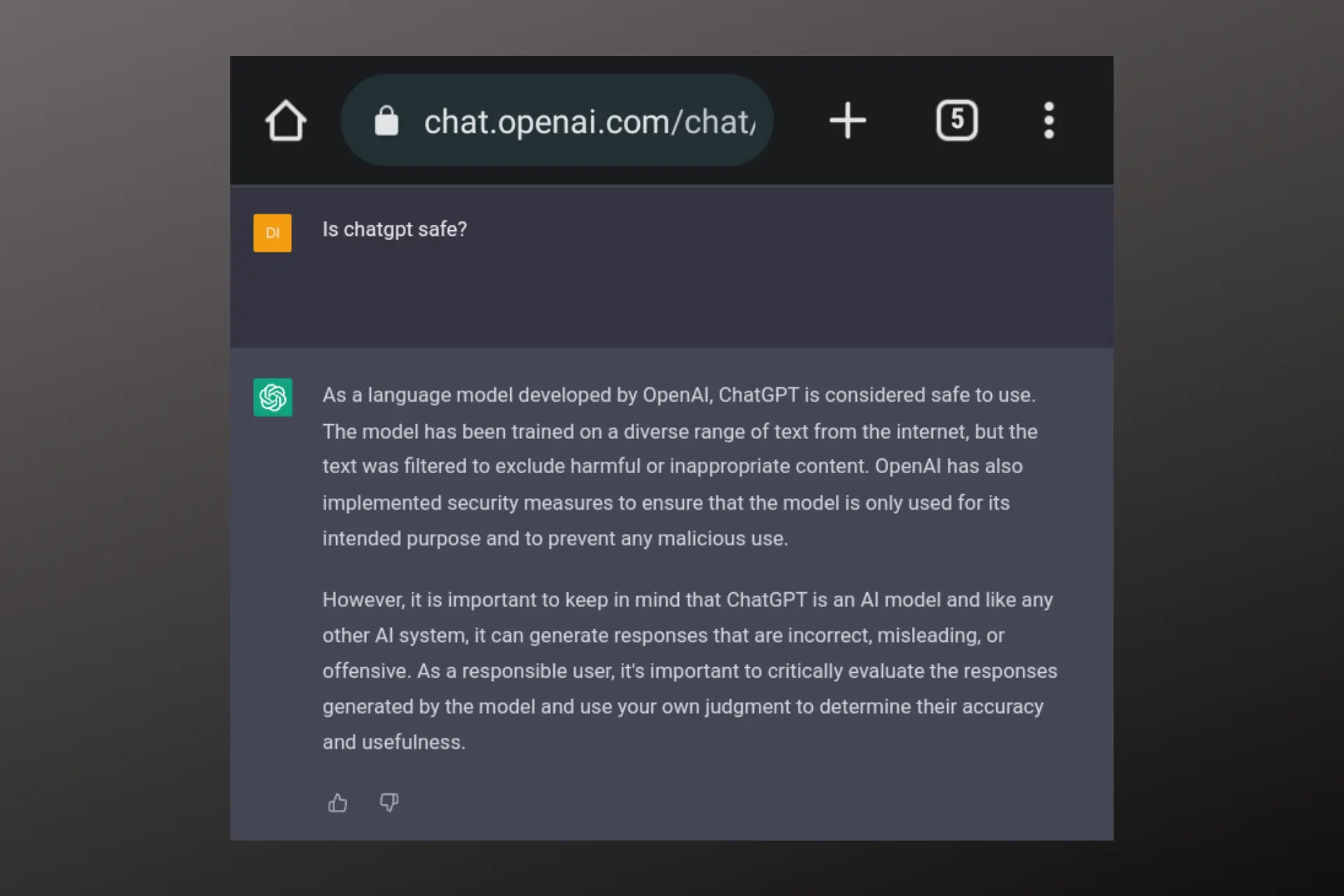
Is ChatGPT safe? What are the dangers of using ChatGPT? Let’s unpack.
Using ChatGPT poses several risks, including data privacy concerns due to information sharing with third parties, vulnerability to phishing attacks facilitated by AI-generated content, exposure to misleading or inaccurate responses, and potential misuse by cybercriminals.
Below, we’ll walk you through more details and give you pro tips for using ChatGPT risk-free.
Is ChatGPT safe?
As with any AI system, there are inherent risks associated with ChatGPT’s use.
For example, the vast amount of data used to train the model contains sensitive information about individuals, such as their names, IP addresses, and personal details.
But, OpenAI has also implemented various security measures to ensure ChatGPT is as safe to use as possible.
Also, the model has undergone extensive testing and evaluations by OpenAI to ensure that it operates within the bounds of safe and ethical AI practices.
However, there still are some risks.
What are the potential threats of ChatGPT?
ChatGPT is not without its potential risks and threats, like any technology that uses artificial intelligence. Some of these include:
Privacy concerns
When you trust ChatGPT with your personal information, including your email, location, and more, you open yourself up to the potential for security risks like in any other online platform.
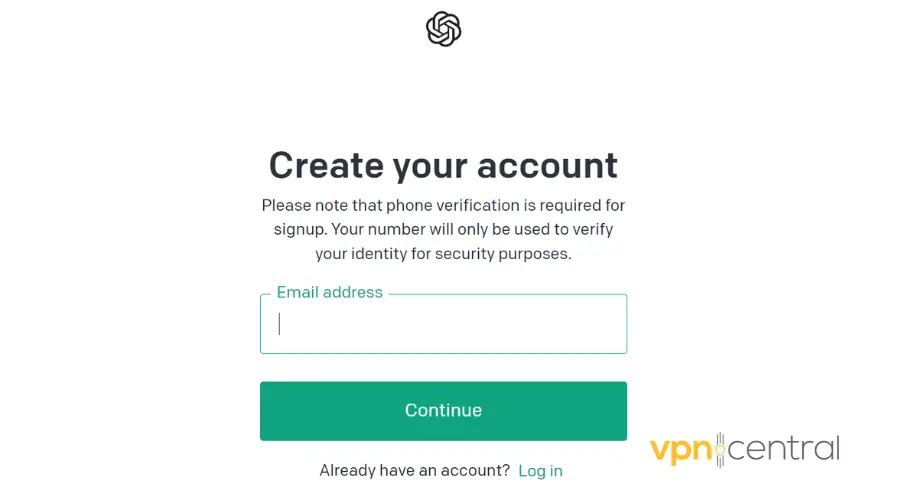
They store these users’ information to train their AI. From their Privacy Policy, we got this:
Usage data: We may automatically collect information about your use of the Services, such as the types of content that you view or engage with, the features you use, and the actions you take, as well as your time zone, country, the dates and times of access, user agent and version, type of computer or mobile device, computer connection, IP address, and the like.
Besides that, they have your email address and phone number and will share it with third parties: we may share Personal Information with vendors and service providers
Since there’s a great chance your data will be shared with multiple entities, the risk is pretty high.
You may be able to check OpenAI’s security, and terms of use, but your data will also be handed into the hands of third-party partners, and we don’t know exactly who those vendors and service providers are.
So even if a hacker may be unsuccessful in obtaining information by a direct attack on OpenAI, you still are at risk.
Any breach in one of those partners’ data systems poses a privacy problem for you, as a ChatGPT user.
ChatGPT can help cyber attackers
With its advanced language capabilities, attackers can use ChatGPT to craft highly convincing phishing emails, effectively duping victims into revealing sensitive information or downloading malware.
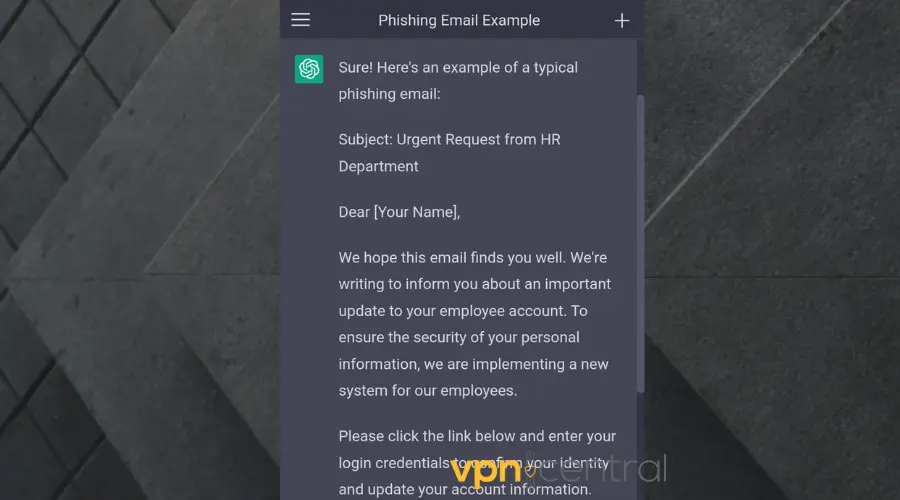
That being said, you can’t be scammed directly on ChatGPT, so in that sense, it’s safe.
Additionally, you should beware of deceptive emails pretending to be from ChatGPT or its parent company, OpenAI.
Because of its huge user base, ChatGPT often experiences downtime. When that happens, users have the option to get an email notification when the service is back up.
This can be an opportunity for cyber attackers, so always double-check all messages you receive.
Misleading information or mistakes
On a slightly different note, let’s not forget that ChatGPT can make mistakes.
The AI lacks human understanding and may struggle to comprehend context. Thus, it can deliver faulty, misleading, or plain wrong answers.
ChatGPT seems like an opportunity to cut down on work, with an increasing number of students experimenting with AI’s academic writing skills.
We put it to the test, and here’s how it went:
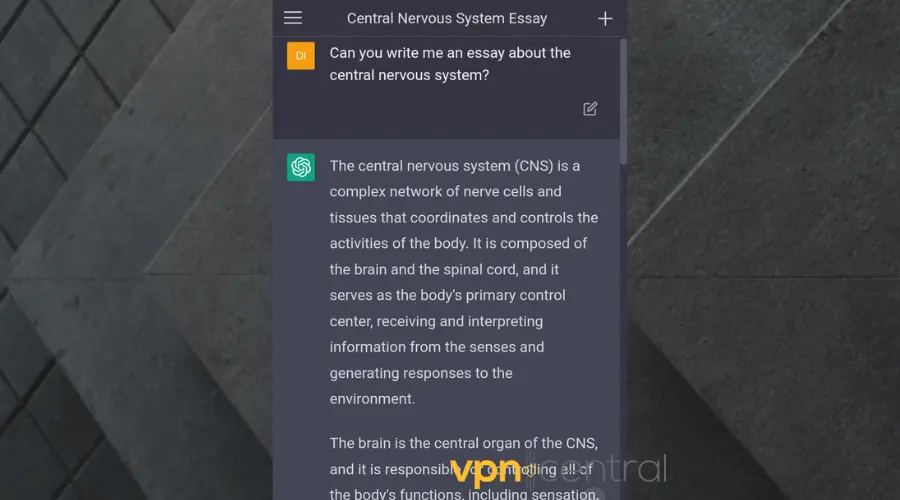
Turns out, it may deliver plagiarised content, with wrong citations.
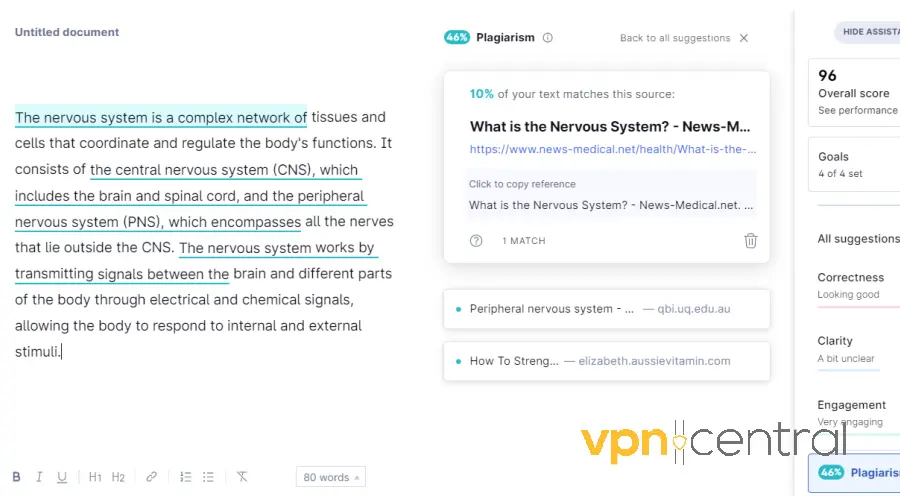
Also, it’s only using data made available after 2021, so it cannot discuss several issues, including current politics, the COVID-19 pandemic, etc.
So we’d suggest you don’t run with everything ChatGPT says. Don’t use it as a know-all source of information.
There’s no doubt it can help you find what you’re looking for more quickly but always cross-check the data.
How to stay safe while using ChatGPT
While these potential threats are real, there are steps you can take to reduce your risks and stay safe while using ChatGPT. Here are some practical tips to help you stay safe:
1. Hide your real data with a VPN
VPNs can help keep your personal information and online activity private and secure, by hiding your real IP and encrypting all your data.
One of the best VPNs for ChatGPT is ExpressVPN. Here’s how to use it to stay safe:
- Subscribe to an ExpressVPN plan and download the software.
- Log in with your credentials.

- Search for a server and connect.
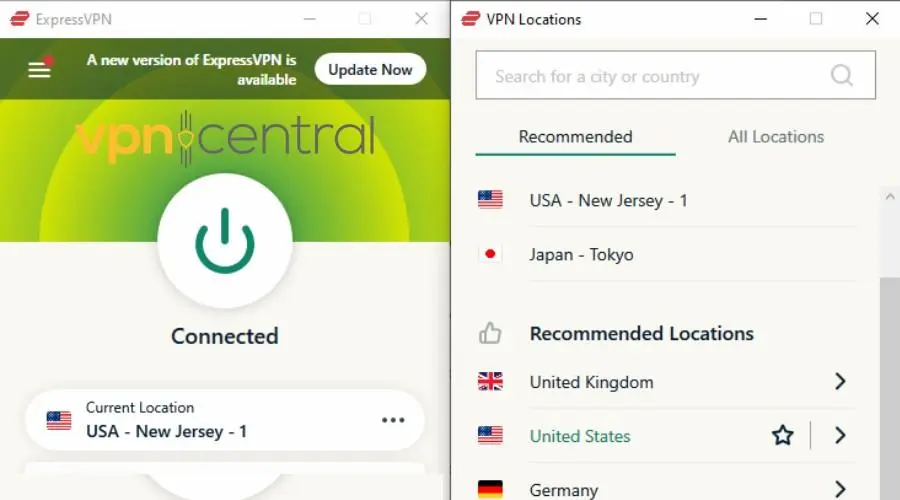
- Open ChatGPT and give it a good prompt.
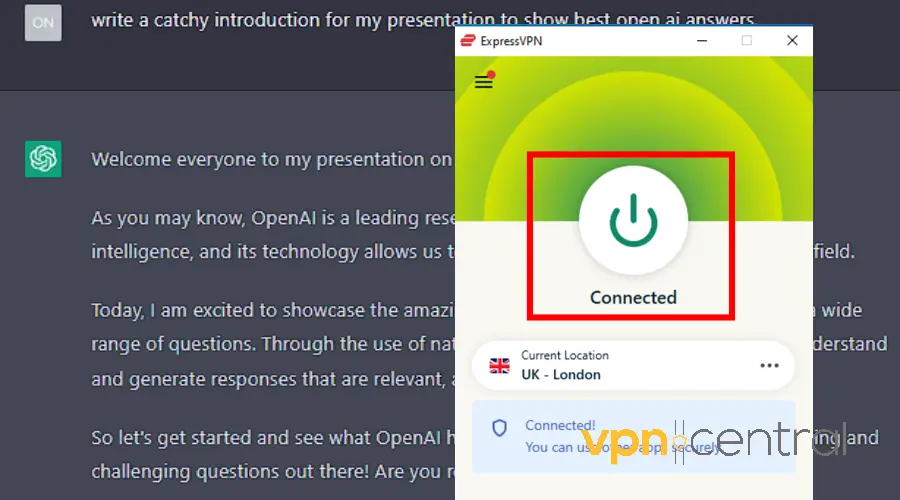
Your email and phone number will still be visible to ChatGPT. However, your IP address and location information will be hidden.
You’ll be associated with the location of the VPN server you pick, not with your real one. It will also help access ChatGPT from countries where it’s blocked, such as Ukraine or Turkey.
2. Be careful with personal information
Be cautious of what information you share with ChatGPT.
If you’re unhappy with the fact that they store and sell user data, there’s good news. You can remove your information from ChatGPT if you permanently delete your account.
How to delete your data from ChatGPT
To initiate account deletion through their assistance chat, log in to your account and follow these steps:
- Click on the Help button located in the top right corner.
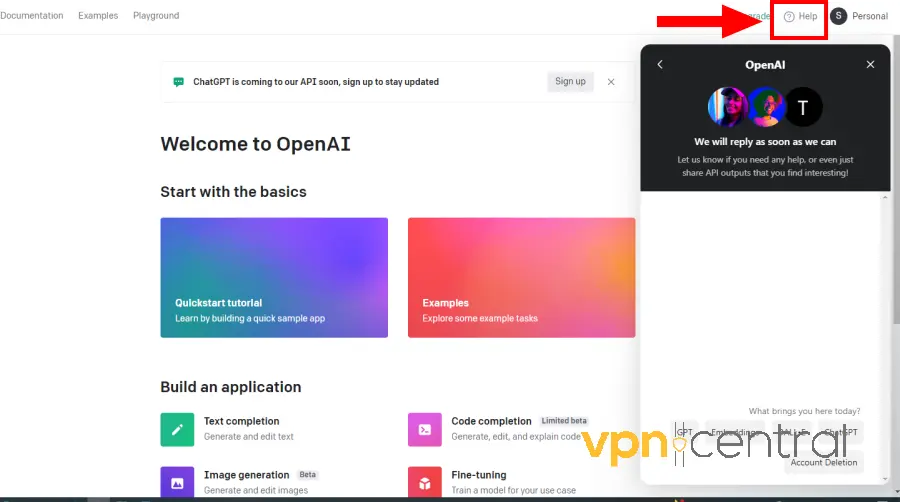
- Choose the option Send us a message.
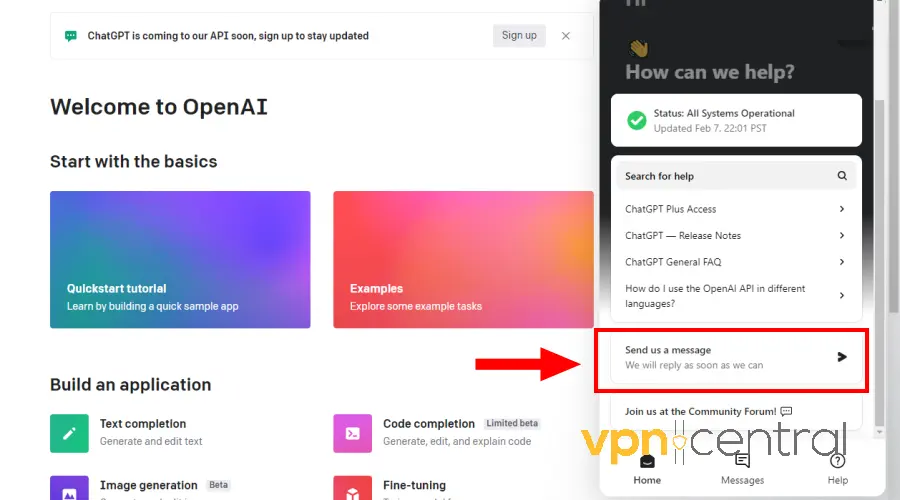
- Indicate your request for Account Deletion.
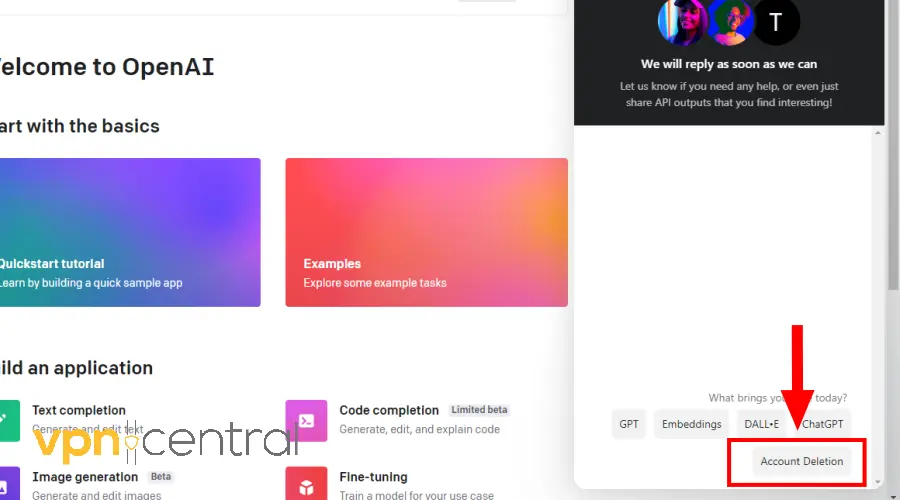
- Follow the prompts to complete the process.
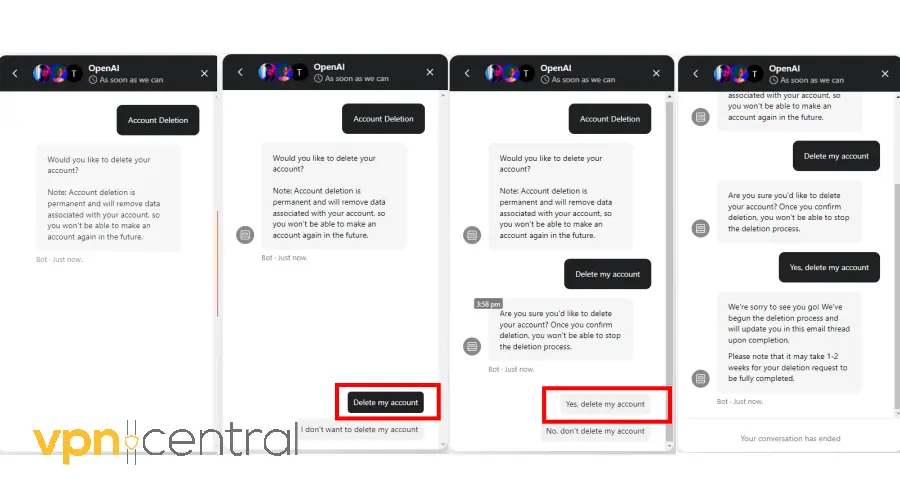
Your request will then be sent, and you will receive a notification once it is completed. It’s important to note that it may take up to 1-2 weeks for your request to be fully processed.
Also, you must log in to the account for this process, as they need to confirm that you are indeed the account holder.
Read more:
Other ways to stay protected
- Keep your antivirus enabled and up to date
- Avoid data stealing and phishing attempts by signing up with a secondary email (that you won’t use) or a burner email
- Report any suspicious emails or text messages to the relevant organizations
Is ChatGPT a search engine?
No, ChatGPT is not a search engine and shouldn’t be used as such.
ChatGPT is confined to generic information and does not actively seek to elaborate on a topic, address related questions or misconceptions, or provide unique citations.
The CEO, Sam Altman, has openly acknowledged these limitations and encourages users to be mindful of them:

It can be a useful tool for generating text. But if you want verifiable information, a search engine like Google is the way to go.
Conclusion
ChatGPT is a powerful tool that has the potential to improve our ability to communicate and access information significantly. Itmade a stunning debut in the AI world, taking the industry by storm. Millions of people worldwide started using the platform as soon as it launched.
By following best practices and using a reliable VPN, you can help reduce these risks and enjoy the benefits of ChatGPT while still being safe when using it.
Read our disclosure page to find out how can you help VPNCentral sustain the editorial team Read more


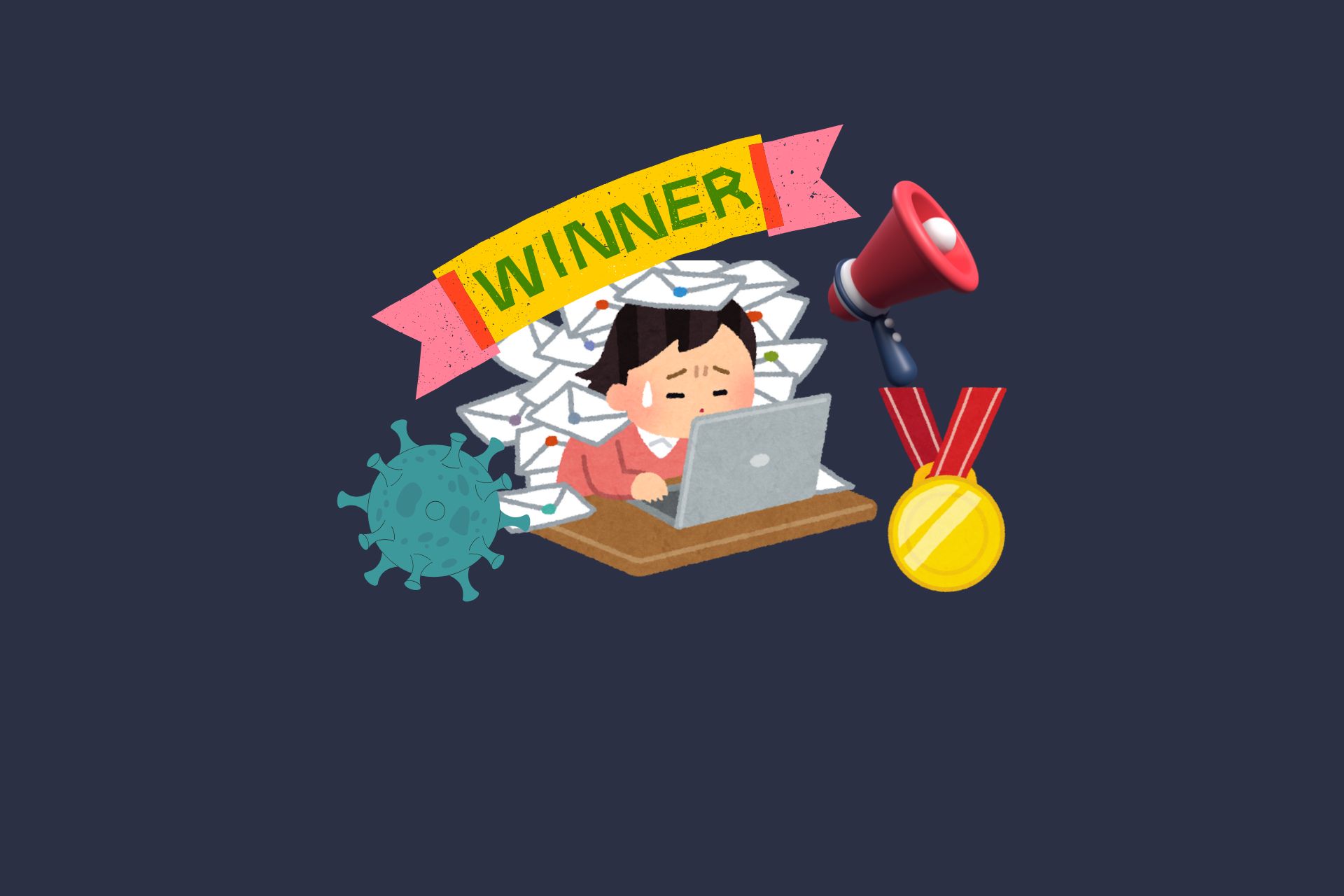

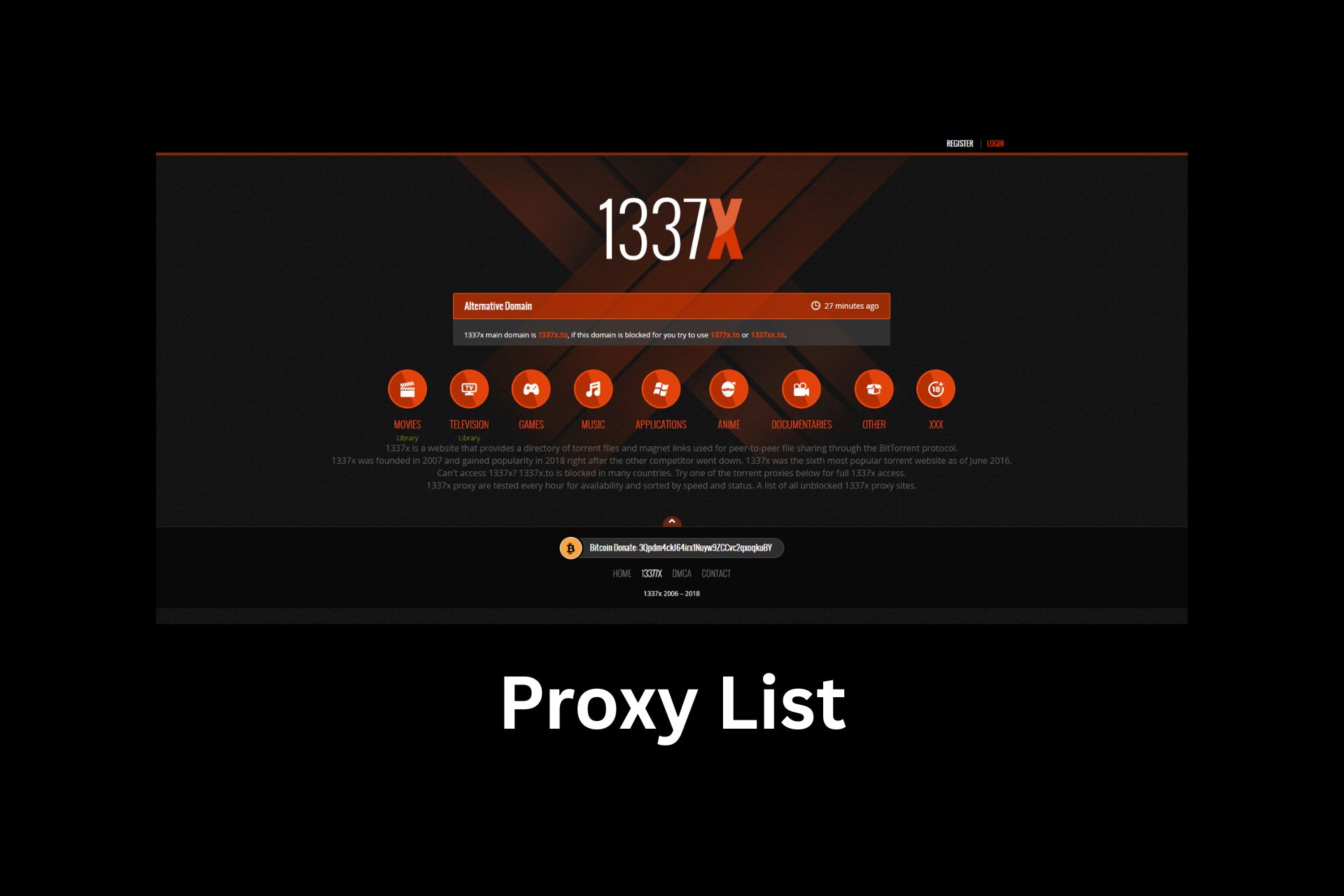
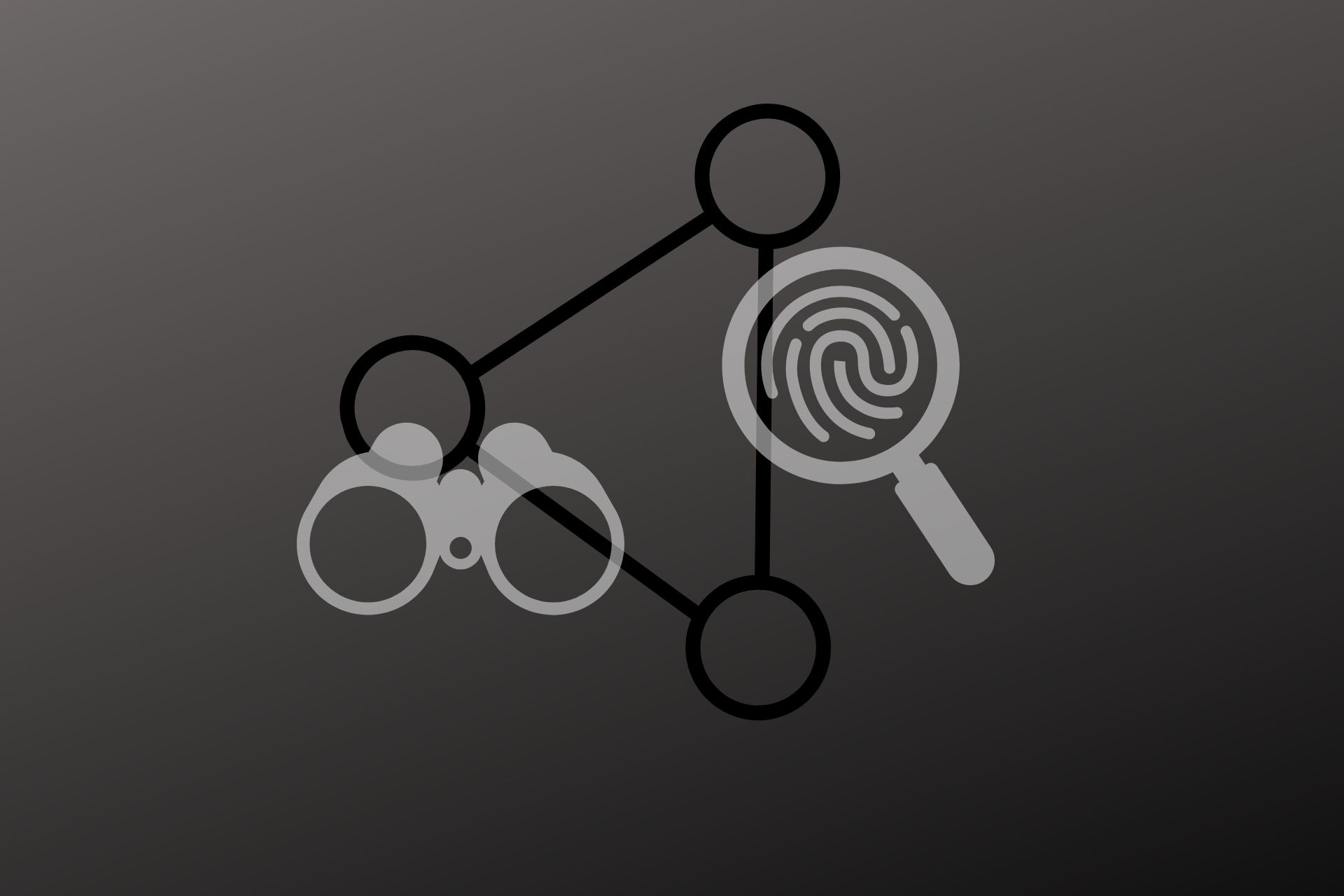
User forum
0 messages